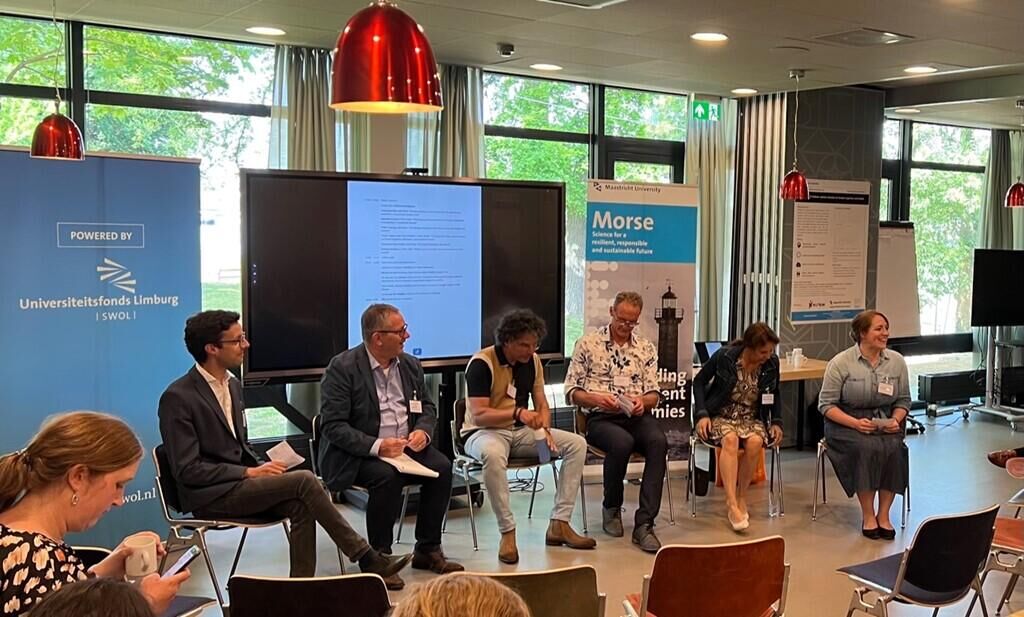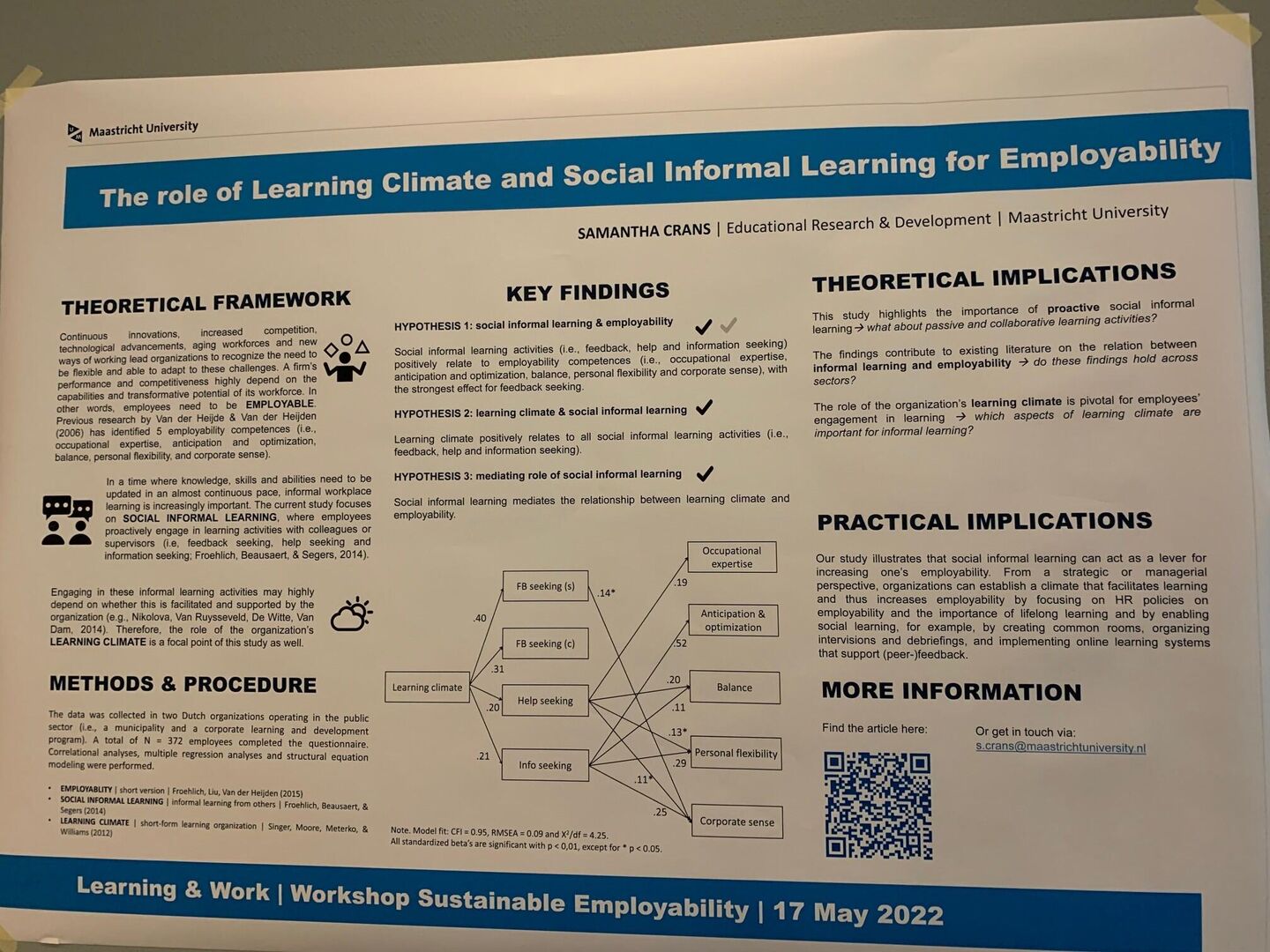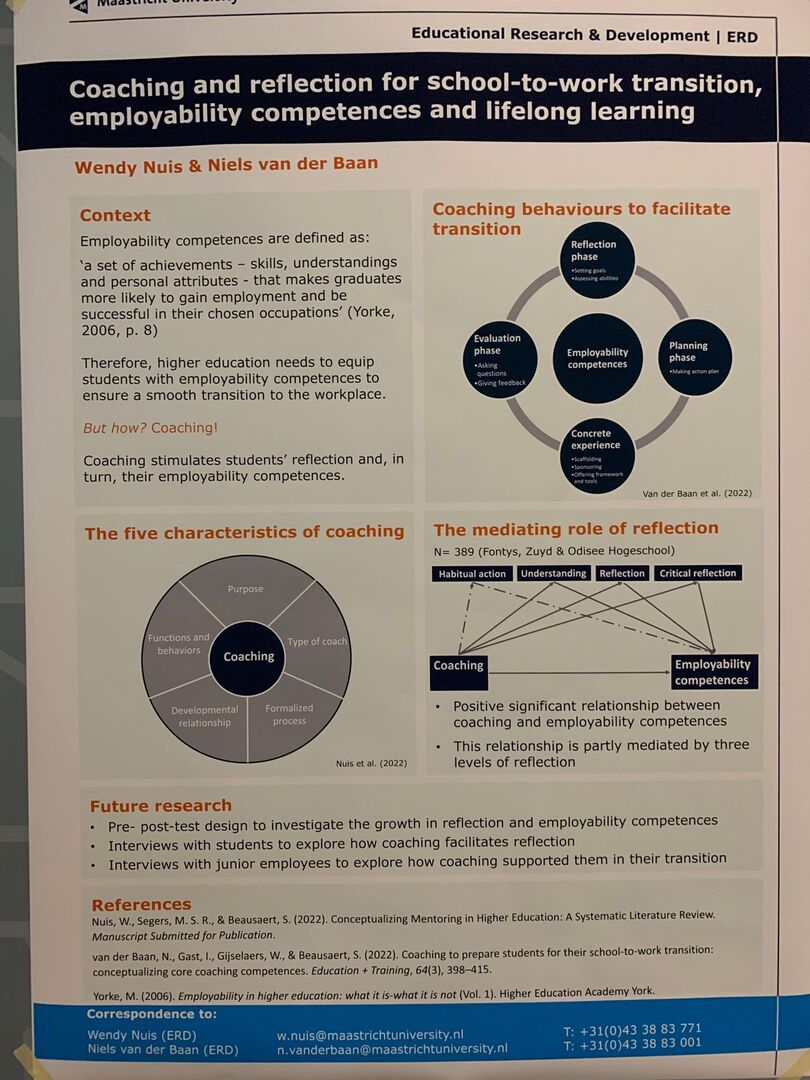

DECP continues to invest in skills development
Any employer organisation will recognise that an educated population is the backbone of economic growth. For the past six years, DECP has been investing in developing and further expanding expertise in this area. Whether it's about improving national structures through lobbying and advocacy or about how groups of companies together can narrow the gap of skills, DECP may know how to handle it. This expertise is mainly gained in daily practice. But to keep abreast of new scientific insights, DECP has maintained an intensive relationship with a number of universities for years. Maastricht University organised a fascinating seminar this week with the title ‘sustainable employability : a multi-disciplinary perspective’. DECP took part in the discussion panel.

Economic sectors with the potential to grow are often hampered by the fact that too few people are available with the right vocational training. This has several causes. For example, vocational education curricula are often determined for a longer period of time, while developments in companies move more quickly. As a result, competency needs are constantly changing. We refer to knowledge, skills and attitude. This understanding shows that it is better to speak of competence development than of skills development only. In any case, entrepreneurs often experience a gap of skills or a skills mismatch that they share with the employers' organisation. The subject is often discussed with political decision-makers, but only slowly leads to improvements. You can't blame the government for that. Technological developments happen much faster than political decision-making and changes in structures.
Is there nothing at all that can be done to ensure that curricula of vocational schools move along with developments in the economy? Where, moreover, there is an increasing need for lifelong learning structures for workers in order to create sustainable employment? Certainly. Although there is no unequivocal answer. It is important that entrepreneurs work together to analyse what exactly the gap of skills is that hinders them. To then work together on pragmatic solutions to close the most important gaps. DECP has developed a number of effective methods for this that have since been successfully applied together with several partners. In Mongolia, Ivory Coast, Bolivia, the Philippines. The key is that the employer organization takes control and keeps the process going. Direct involvement of trade unions and government is required because at the end of the day all stakeholders need each other. This makes competence development an important building block for social dialogue development.
By taking more control into your own hands, it is necessary to have basic knowledge of didactics in-house. This concerns questions such as 'what are competencies, how do you define learning goals, how do you set up a development process, what does a high-quality internship look like, which learning interventions can you use to achieve your goals, how do you test what has been learned? , what are the tasks of a learning coach, how do you develop a learning culture in companies, what is the relationship with leadership?' All these questions show that this is actually about more than superficial knowledge.
All these themes were discussed during the Maastricht University seminar. PhD students reported on their research and findings through various mini-workshops and discussion rounds. Professionals from the field tried to relate these insights to current developments in their organisations and sectors. Jos van Erp, an internationally renowned expert in skills development programs at DECP, shared his experiences with the attendees. Many elements in the field of learning & development are universal, was one of the conclusions. Yet we see that many, very meaningful, studies by European universities are mainly conducted in Europe. That elicited from Prof. dr. Simon Beausaert's comment; “At the next meeting of the Advisory Council, we will discuss whether and how we can collaborate intensively with one or more universities in an emerging country. After all, we can undoubtedly learn a lot from each other”. It goes without saying that DECP wants and can play a connecting role in this.

